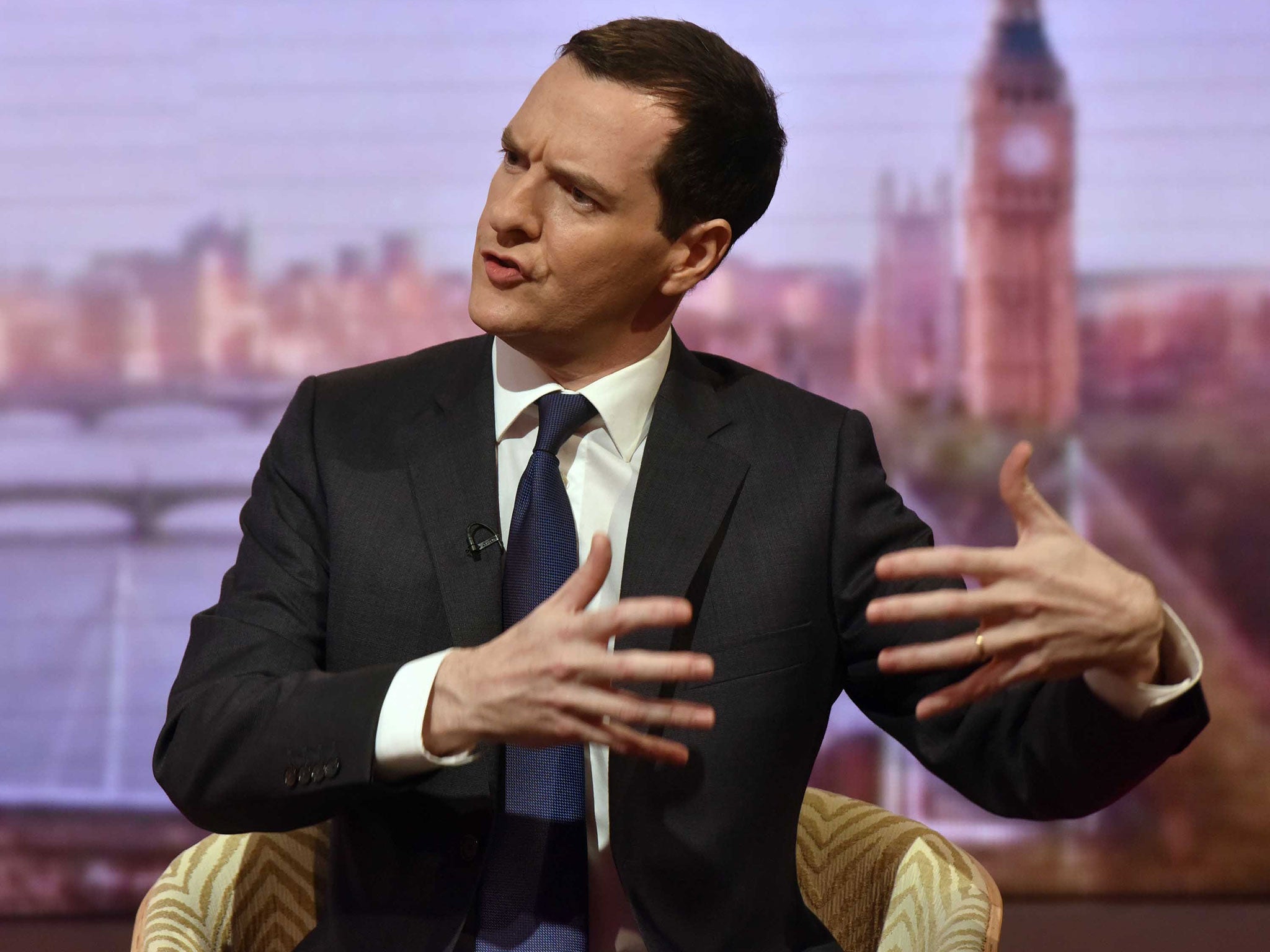Budget 2015: Benefits cap to be reduced to £20,000 for families outside London
In the capital the maximum figure claimable will drop to £23,000

Your support helps us to tell the story
This election is still a dead heat, according to most polls. In a fight with such wafer-thin margins, we need reporters on the ground talking to the people Trump and Harris are courting. Your support allows us to keep sending journalists to the story.
The Independent is trusted by 27 million Americans from across the entire political spectrum every month. Unlike many other quality news outlets, we choose not to lock you out of our reporting and analysis with paywalls. But quality journalism must still be paid for.
Help us keep bring these critical stories to light. Your support makes all the difference.
The cap on the amount in benefits that can be claimed by one family will be reduced to £20,000 a year outside London and £23,000 in the capital.
George Osborne will announce the further squeeze, which will affect another 90,000 households in the UK, in his Budget on Wednesday. The Conservatives’ election manifesto pledged to reduce the current £26,000 cap to £23,000 nationally.
The Chancellor said: “It is not fair that people out of work can earn more than people in work so we are going to cut the benefit cap, as we said in our manifesto, to £23,000 in London. It will be lower in the rest of the country.”
He will point out that someone in work needs to earn £34,000 before tax to take home £26,000. People would need to earn £29,000 pre-tax to bring home £23,000, and £25,000 to take home £20,000. In London, two in five households earn less than £23,000.
Mr Osborne believes the introduction of the £26,000 cap has not resulted in the “ethnic cleansing” predicted by critics, who warned that people would be forced to move to less expensive areas. Government figures show that more than half the households affected by the cap were not caught by it 18 months later. Of those, 40 per cent had moved into work.
The Chancellor will extend a scheme under which local authorities can provide discretionary help to claimants with their housing costs. The cap does not cover benefits for the sick, disabled or pensioners.
The Budget will include a £30m package to speed up the adoption process for the 3,000 children in local-authority care waiting to find a family home, with a focus on harder-to-place children.
Mr Osborne said that it was a “tragedy” that so many children ready for adoption were waiting long periods to find new homes. More than half have spent more than 18 months in care, even though there is a surplus of potential adoptive parents.
Budget 2015: "Why do we call social security payments 'benefits'?"
300,000 people plead with Osborne not to cut tax credits
Osborne's tax credit cuts will 'affect more than seven million children'
Osborne to axe housing subsidies for higher income earners
The new money will waive fees local authorities must pay to adoption agencies for finding, assessing and matching adoptive parents and children. A £27,000 fee is paid for an adoptive parent found from outside a local authority’s border, either by another council or by one of 30 voluntary-sector adoption agencies.
Ministers believe the system is a disincentive to local authorities’ looking far and wide for potential parents for children in their care, particularly those who are the least likely to find a new home.
Mr Osborne said: “We cannot sit by when so many children are waiting so long to find a stable, loving home, particularly when there are parents out there who want to adopt. It just isn’t good enough. So I want to do all I can to make sure that there are as few barriers as humanly possible between children in care and their new parents.
“It shouldn’t matter where those families might live.”
David Cameron said: “The average time it takes to place a child with a new family has been falling and I am delighted we are able to offer this funding to try to ensure it falls further.”
The number of children adopted increased from 3,200 in 2010 to 5,050 in 2013-14. The average time it took to place a child with adoptive parents fell from an average 656 days in 2012-13 to 533 days in 2013-14.
Subscribe to Independent Premium to bookmark this article
Want to bookmark your favourite articles and stories to read or reference later? Start your Independent Premium subscription today.
Join our commenting forum
Join thought-provoking conversations, follow other Independent readers and see their replies
Comments